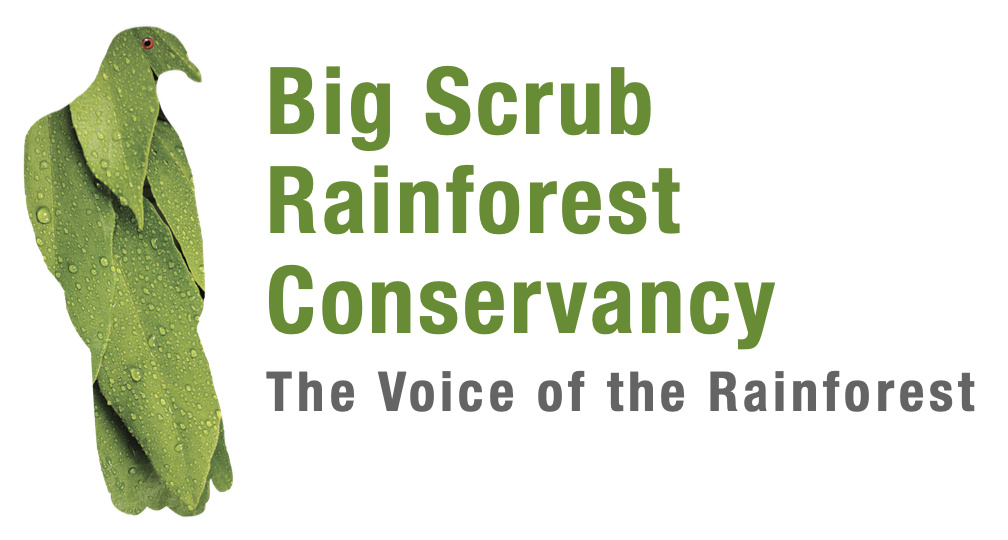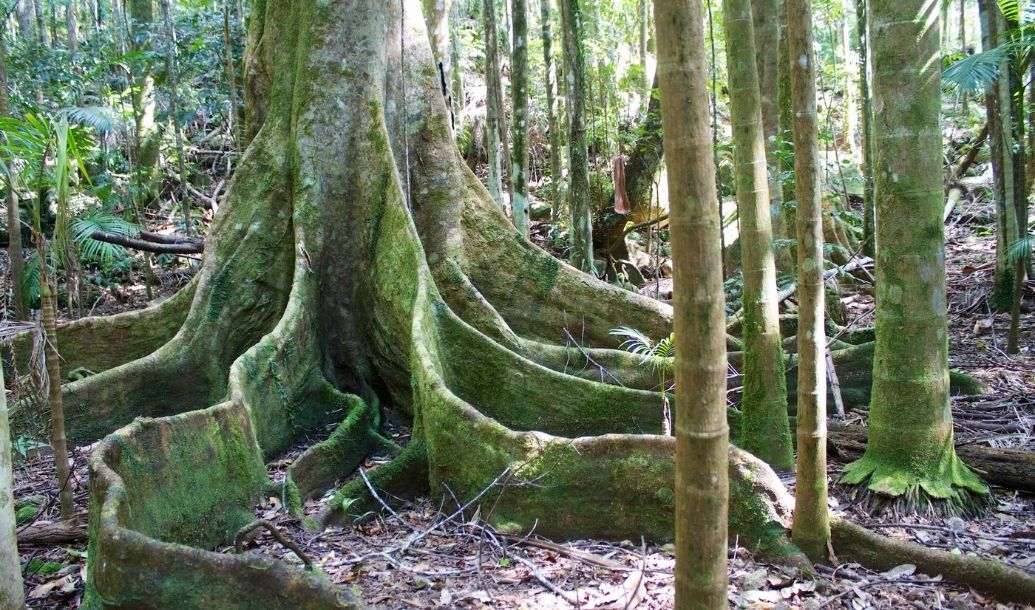As another turbulent year draws to a close, Big Scrub Landcare paused to hold its AGM on Sunday, reflecting on a period where progress returned despite continuing uncertainties in the broader community.
In his President’s report, Dr Tony Parkes described 2020-21 as a continuation of a succession of excellent years for our Landcare group. Throughout the year, we ran approximately $1 million worth of projects covering a range of remnant care and rainforest re-establishment initiatives across the Big Scrub footprint.
Undoubtedly the highlight, which occurred after the year end, was the announcement that Lion Brewery will, following its planned purchase of Stone & Wood, donate $1 million to Big Scrub Landcare. Stone & Wood has been a strong supporter of BSL over the years and we extend to its Chairman and board our heartfelt thanks for securing this wonderfully generous donation. This funding will enable us to implement our plans for our internationally innovative Science Saving Rainforest (SSR) Program and to continue to restore, expand and provide ongoing care for the priceless remnants of our local critically endangered rainforest.
In addition, we already have substantial funding in hand or committed for the SSR Program. The NSW Environmental Trust, a major supporter of the Program, is providing a $200,000 grant which will fund the DNA sequencing and a part of the genome analyses of 14 species. It has also contributed a $100,000 grant to our sister organisation Big Scrub Foundation that will fund DNA sequencing and part of the genome analyses of additional species, as well as funding for site preparation at our DPI plantation site.
Our other major funding partner, the NSW Government’s Saving our Species Unit (SoS), continued to be a major supporter. We are now in the final year of the large four-year project: Conserving endangered rainforest and its many threatened species in the Big Scrub Region of the NSW North Coast. This project is being undertaken in partnership with SoS’s Co-investment Program, which matches the financial contribution of its partners and provides an additional 15% for monitoring the project’s outcomes. Big Scrub Foundation is providing $180,000 over four years to this project, while Big Scrub Landcare provides a further $84,000. SoS’s contributions lift this to over $600,000, which has been put to use rehabilitating a number of very high conservation value remnants, including four in Nightcap National Park and five NPWS Nature Reserves.
In addition to these funded projects, many of our landholder members have continued to undertake valuable restoration work on their properties. We have highlighted just a few of these in recent stories, including long-term Big Scrub regenerators the Lymburners, who are mourning the passing of much-loved family member Julian. Our thoughts are with Stephanie Lymburner as are our eternal thanks for the tireless work Julian undertook restoring so many remnants.
On the staffing front, Kirralee Donavan stepped down as our Manager to take a full-time position with Rous County Council but will continue as a member of BSL’s Management Team. We were very fortunate to secure the services of Renee Borrow, initially as Projects Manager, who is already making a major contribution to the Management Team. Chris Byrne continues as Communications Manager in a part-time capacity, focussing on community engagement, website content, PR and social media.
Returning to the update on the SSR Program, Tony noted great progress is expected over the next six months. The collection of leaf samples for DNA sequencing is now progressing well after almost two years of Covid-19 restrictions that seriously impeded access to collection sites. The current schedule is for collections of leaf samples across the whole range of the 23 structural species and 8 threatened species to be completed by the end of March next year. DNA sequencing and genome analyses should be completed for these species by the end of June. Genome analyses will identify the target individuals or populations that will, for each species, provide optimal genetic diversity to avoid inbreeding depression and provide resilience to climate change, new diseases and new insects. Propagules (either cuttings, juveniles or seeds) of each targeted individual, or individuals in targeted populations, will subsequently be collected and propagated into planting stock for the seed plantations. The number of species has been expanded and now includes 30 threatened species in addition to the original 23 key canopy and other structural species. We are also looking at adding another seven canopy species that are commonly used in restoration projects.
On a personal note, BSL would like to extend its thanks to Big Scrub Foundation’s directors and major donors, our long-term partner Envite Environment and its wonderful people (Maree Thompson, Pauline Roatz, Georgie Jones and Dan Cox), our project partners including experienced bush regenerators (Darren Bailey; Jesse Vandenbosch and Big Scrub Regeneration; Envite Environment), supporters and collaborators including the SoS unit, the Environmental Trust, Department of Primary Industries Wollongbar, NSW National Parks and Wildlife Service, Rous County Council, Lismore City Council, Ballina Shire Council and of course the many dedicated landholders whom we work with. Last but not least, we wish to thank BSL’s many sponsors and donors, including particularly Brookfarm, Stone & Wood, the Cornell family and others who prefer to remain anonymous.
We wish each and every one of you a happy holiday season and look forward to connecting with you again next year.
To read Big Scrub Landcare’s full Annual Report, click here.


